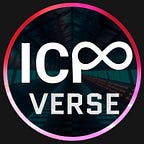The Internet Computer is a great network to build on for the future: it is the only chain where everything can be done on-chain. From the smart-contracts to the front-end, everything in IC can be on-chain.
The question is not if something cannot be done on the IC chain, the question is: What would make Web 2.0 projects migrate to Internet Computer?
Even with more efficient development paradigms possible in Rust, a vast number of web 2.0 companies have their large codebases developed in languages like Java, C++, Python etc. There are some good reasons for these choices but mostly, it is just a headache of legacy.
It would be unthinkable for a firm like Oracle to migrate hundreds of thousands of lines of code from Java to Rust. The newer languages, no matter how good don’t justify this monstrous task. It is the same issue with building on a particular blockchain or a Web 2.0 platform.
Many smaller companies don’t have the necessary resources to carry out such a migration as well: both in terms of time, and personnel. This is particularly true for Game Studios, and young blockchain startups. They would rather use all their resources to carry on building whatever they have promised their community and investors to build, and that is perfectly fair. Given that the IC ecosystem is relatively young, and it is still very much still in the discovery phase, the onus of making their projects IC-compatible, or at least IC-friendly cannot be expected to fall on their dev teams. It is for this reason that ICPverse came up with a concept called External Integration.
External Integration is a model where projects wholly or partially not on-chain can connect to IC in a P2E (Play to Earn) capacity. This is achieved with an interface that has at least (but not limited to) 3 methods to apply for the P2E participation on-chain, receive data from the off chain project, and to pass the results or complete an action on-chain by the Externally Integrating platform (for example ICPverse). It is particularly useful for Game and Metaverse projects that were either built on Web 2.0, or on a different blockchain. Being the first Metaverse and IGO Launchpad on IC, ICPverse wants to act as a catalyst for migration of web 2.0 or a different chain gaming project to IC.
One major benefit of External Integration is its platform agnosticity: it could work as well for a game or metaverse project wholly on the Internet Computer as it can for an Android Game running with an emulator on Web 2.0. So long as the project in question has a mode of passing data as an HTTP Result, this is achieved easily with just a few lines of code. With the unique ability of the IC to directly service HTTP Requests, this becomes more convenient for both the off-chain project, as well as for ICPverse as the integrator. The next advantage is the minimalism: it requires almost no changes on the project end to implement this, and is a repeatable, simple process for the integrator. This makes it client-friendly and viable.
Thirdly, the External Integration helps the player or the wider consumer community, now they can earn tokens through P2E simply for playing or consuming the service, that they originally were doing for free. And finally, it helps the IC ecosystem itself, by making it possible to integrate popular products, that originally found it impossible to be a part of the IC ecosystem, to partially become so, and bring their wider userbases to the Internet Computer.
We believe this will help grow the IC Community by tapping into those userbases that weren’t a part of it yet, and help us in playing a small role in Dfinity’s goal of bringing every form of projects to the Internet Computer.
Stay tuned for more details on ICPverse.
Site | Twitter | Discord | Medium
References
